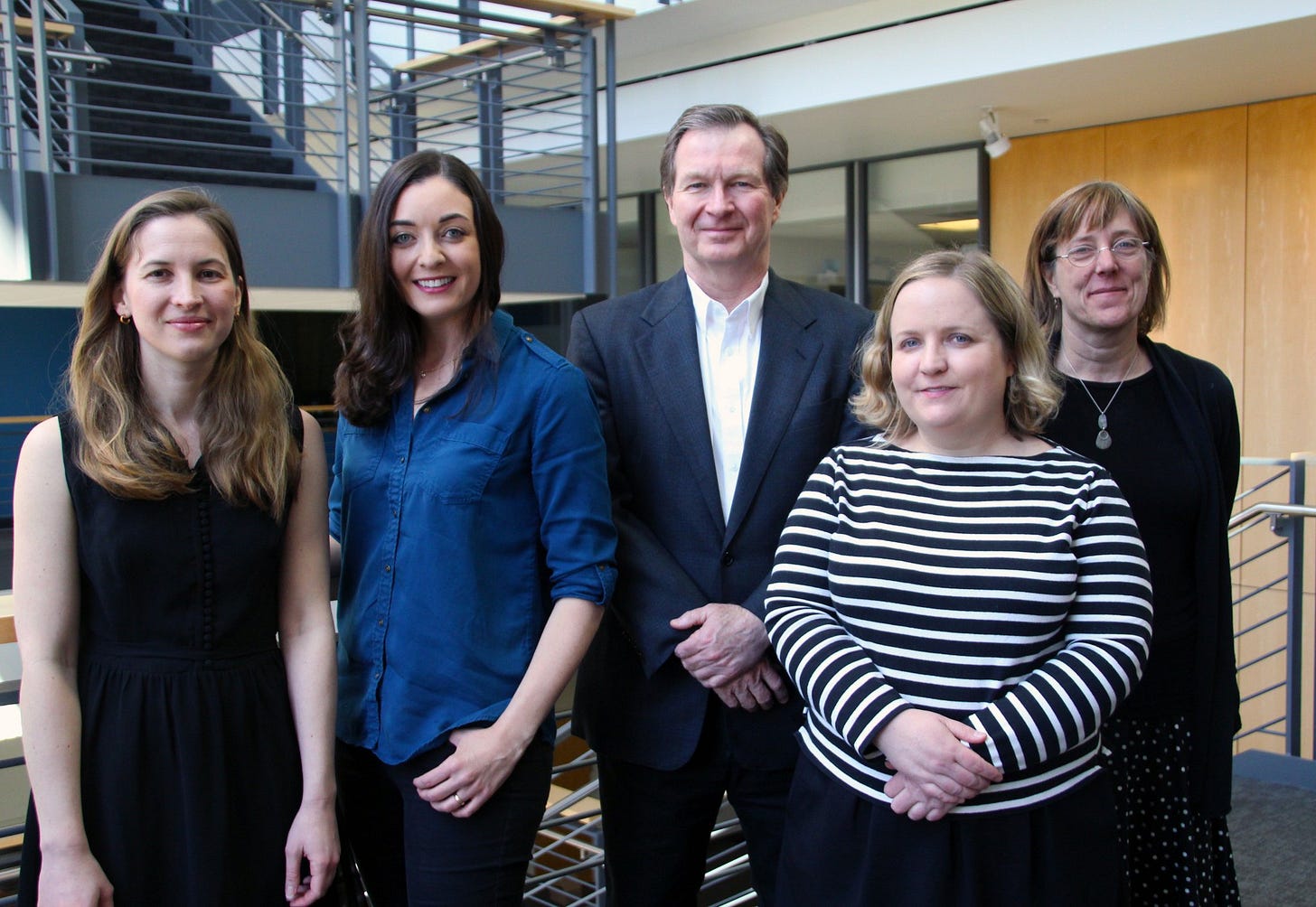Editor’s note: the original version of this post contained a duplicate paragraph that has since been removed. We regret the error.
Financial advisors love to talk about diversification. It’s a huge industry buzzword that is central to most financial planning, and it’s such a powerful idea this dude - Harry Markowitz - won a Nobel Prize for applying this to something called Modern Portfolio Theory.
So diversification is a good thing and it basically boils down to this:
What’s more important: how much money can you make or how much money can you lose?
Buying either stocks or bonds based on a 70-year old academic theory can be pretty f*cking boring. Now, this boredom has turned into FOMO thanks to new inventions like crypto and social media - tilting the sentiment into more money now, rather than protecting future money.
For those who don’t waste half your day on Twitter, let me tell you what the kids are saying about those who diligently plow their hard-earned money into such antiquated investments like stocks or bonds:
HFSP = Have Fun Staying Poor
This is primarily used by people who own Bitcoin, and who like to constantly remind you that you either don’t own any or you don’t own enough (hint: in their view, you never own enough).
NGMI = Not Going to Make It
Primarily used by people who own Ethereum (ETH) and/or ETH based NFTs (Non-Fungible Tokens). Which are basically .jpegs that you can’t afford.
Paper Hands = You sold something that we Diamond Hands would never sell, which will quickly be followed by a NGMI or HFSP
The point here isn’t to throw buzzwords at you but to illustrate that this new ability to “get rich quick” and then brag about it causes a lot of FOMO. (And if I have to explain FOMO then you must be on your deathbed - look it up if you must).
I personally love a good bet, and something like Bitcoin that can 10x or 100x is very appealing... so appealing that a boring Finance guy like me started buying some over the last several years for a total price of $10,000 for 1 BTC.
The urge to bet big on something with a huge payout is that intense. I even got my Dad (Shout out Kev) to buy some when the price crashed to $6,000 during the pandemic. Lottery jackpots don’t get over $1 billion due to prudent diversification.
But sometimes diversification is about something as simple as being able to sleep soundly at night.
You don’t need an advisor or a Nobel Laureate to understand you have to spread your investments around into what makes you comfortable. It’s why we all joke about going to Vegas and putting it all on black.
When Bitcoin hit $60k earlier this year I found myself watching the price day by day, hour by hour, minute by minute. Sure, I was up big and my career revolves around managing this type of risk, but I didn’t like the feeling of watching my net worth rise or fall $10k in a day based on Elon’s tweets or Chinese Communist Party statements.
So I sold half. Do I have paper hands? Am I going to HFSP?
Maybe, but I slept better that night. And aside from every Pompliano alive tweeting the price constantly I can say I haven’t checked the price of Bitcoin since.
It crashed under $30k after I sold, and I didn’t care. It rose near $70k recently and I still don’t care because I own the amount I’m comfortable with now.
That’s diversification.
What’s the Upside?
Diversification has its place in every person’s portfolio regardless of what social media wants to tell you. And while we can (and will) show you many mathematical reasons why it’s important, all you need to do today is make sure your investments let you sleep at night.
With diversification
WAGMI = We’re All Going to Make It
For Your Weekend
This is where we’ll post a round-up of essays, podcasts, and streaming shows to check out over your weekend. We cast a wide net so you don’t have to.
Read
The Great Organic-Food Fraud by Ian Parker (The New Yorker)
There’s no way to confirm that a crop was grown organically. Randy Constant exploited our trust in the labels—and made a fortune.
Heinecke used to have a sign at the end of his driveway which read “i shoot every third salesman.” Constant, pitching for Pfister, came to the door. Heinecke remembered him as “a smooth talker, one of these guys you have to worry about.” Constant enlisted Heinecke to become a local seed salesman for Pfister. That was their business relationship for the next few years. Then, around 2000, Constant asked if Heinecke knew of any pastureland that wasn’t being used. Heinecke mentioned a nine-hundred-acre farm, owned by a relative, a section of which hadn’t been tilled in years. “Can you rent that?” Constant asked. He then explained that he wanted to farm it organically.
Listen
In the Dark (American Public Media)
There is perhaps no other podcast, true crime or otherwise, that has had a greater real-world impact than In The Dark, which launched in 2016 with an examination of the failed investigation into the infamous disappearance of Jacob Wetterling. Hosted by the measured and confident Madeleine Baran, the journalism behind In The Dark is second to none, a team reporting effort that’s transparently explained to the listener. It’s the rare show to effectively combine shoe-leather investigation, exhaustive sourcing, and groundbreaking data dives, all driven home with rare precision and a welcome dose of humanity. (review by Vulture)












